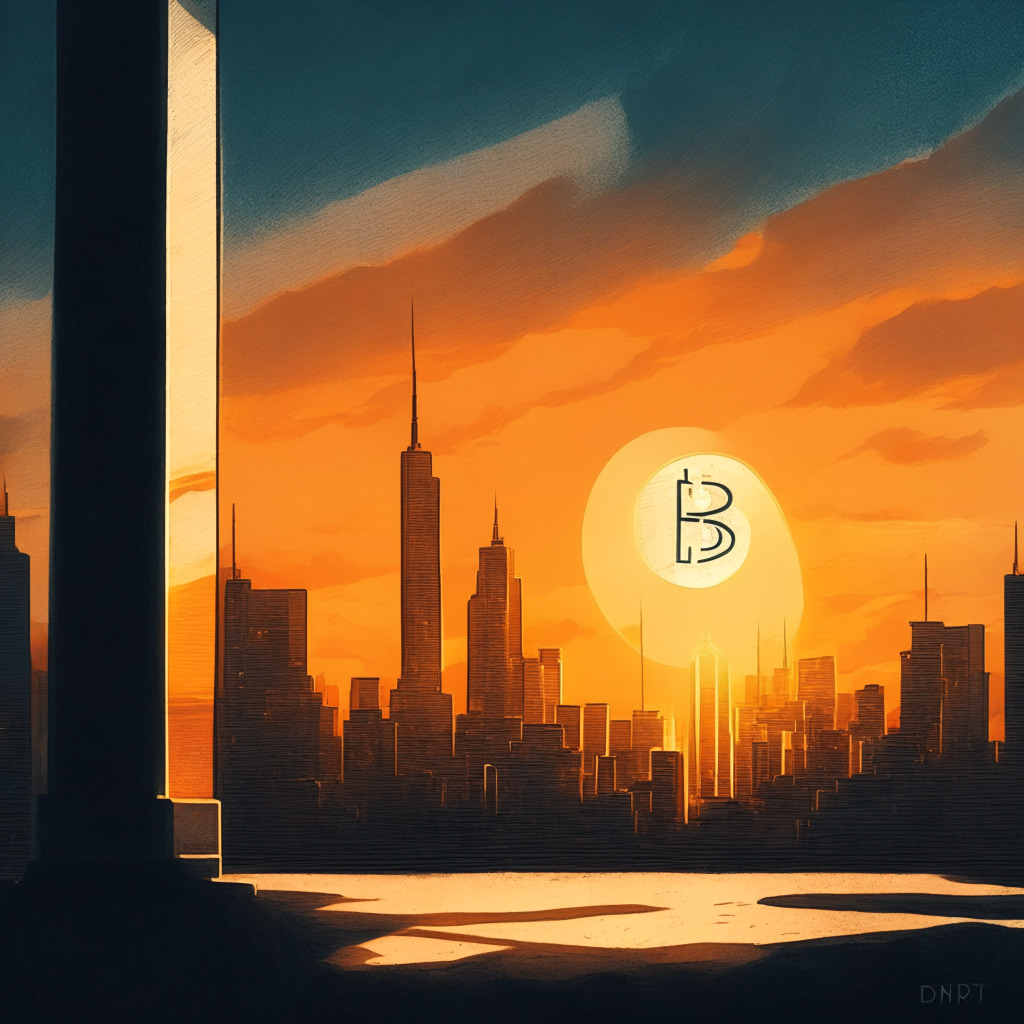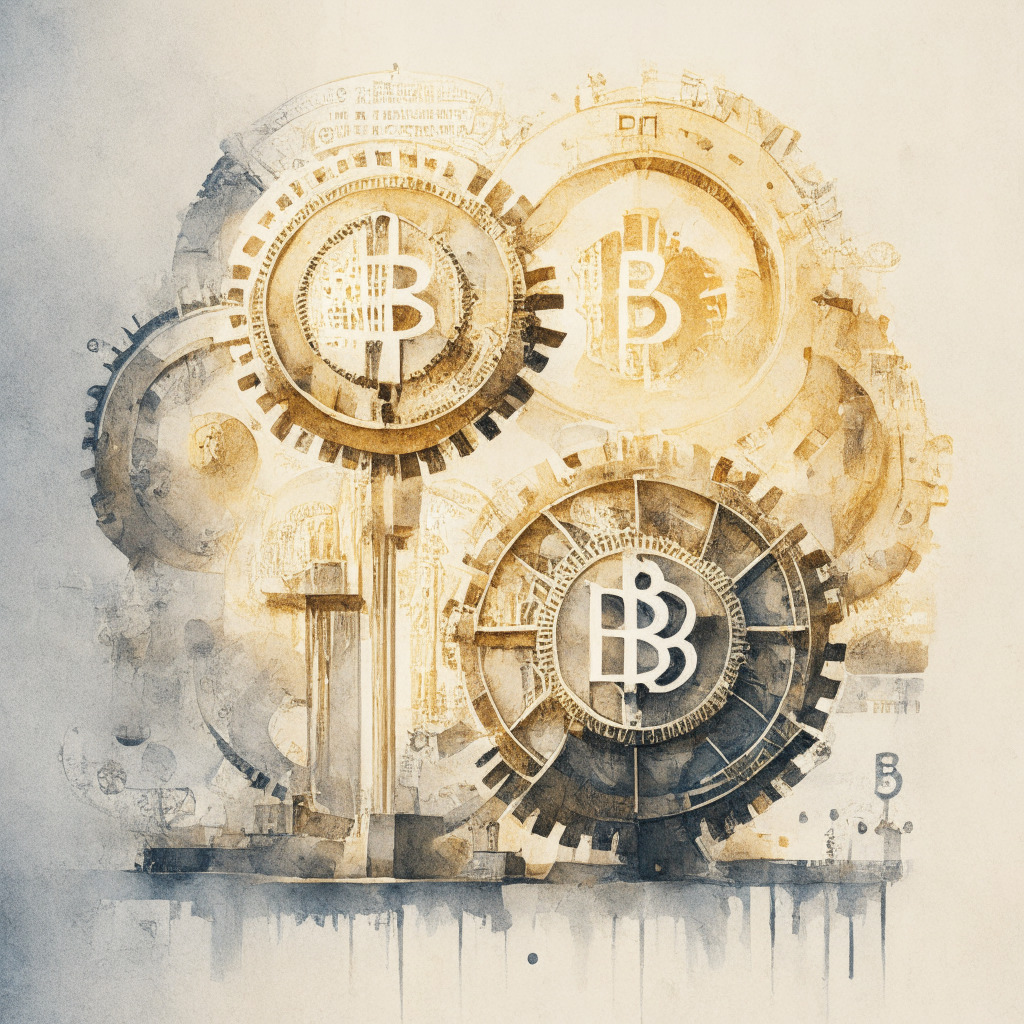The Hong Kong Stock Exchange (HKEX) is integrating blockchain technology via a new platform, “Synapse,” using smart contracts to enhance operational efficiency in financial markets. However, the growing adoption of blockchain also highlights the urgent need for robust security measures and stronger oversight due to risks such as fraud.
Search Results for: Hong Kong Stock Exchange
Global Stocks Surge Amid Fed’s Dovisha Remarks: A Temporary Resurgence or a Market Turnaround?
“Renewed optimism over interest rate shifts resulted in a surge in Asian and European stocks, with Japan’s index leading the way. However, concerns over sustainability and the unpredictable dynamics of interest rates persist. Meanwhile, the crypto exchange Binance has frozen Hamas-linked accounts, highlighting potential issues with personal financial autonomy in blockchain technology.”
Hong Kong’s Synapse Program: Automation Innovation or Vulnerability Invitation in the Crypto Sphere?
“Synapse, an augmented version of HKEX’s Stock Connect program, introduces smart contracts for improved operational efficiency in equities settlement. The initiative offers enhanced real-time visibility and scalability, underlining HKEX’s commitment to capital markets’ efficacy. However, it raises questions about reliance on technology and the potential security risks it might bring.”
Hong Kong’s Ambition to Lead the Crypto Industry: Harmony or Collision with China’s Ban?
“Hong Kong is striving to become a leading crypto hub, aiming to integrate its virtual asset platforms with Shanghai’s. As part of this development, they’ve established a robust regulatory framework for cryptocurrency exchanges, fostering an environment of diverse investment opportunities. This shift poses a likely harmonization between China’s cautious approach and Hong Kong’s liberal views on blockchain technology.”
Navigating Crypto Regulations: Lessons from Hong Kong and the US’s Missed Opportunities
“Web3 companies are shying away from New York due to stringent crypto regulations. In contrast, China and Hong Kong are embracing innovation in the crypto space, showing flexibility and support for sector growth, posing attractive alternatives for crypto enterprises.”
HSBC Hong Kong Opens Bitcoin & Ethereum Futures ETFs: A Step Towards Crypto Accessibility
HSBC Hong Kong now offers customers the ability to trade Bitcoin and Ethereum futures Exchange Traded Funds (ETFs), expanding access to digital asset derivatives in the Asia crypto hub. The ETFs include CSOP Bitcoin Futures ETF, CSOP Ethereum Futures ETF, and Samsung Bitcoin Futures Active ETF.
HSBC Hong Kong Embraces Crypto ETFs: Excitement vs Reality in the Blockchain World
HSBC Hong Kong’s recent addition of access to Bitcoin and Ether exchange-traded funds (ETFs) highlights the growing interest in cryptocurrency investments among larger institutions. However, investors should be cautious not to overreact, as the adoption of crypto investments by mainstream institutions may happen gradually and the technology is still evolving.
Hong Kong’s Crypto Surge: Analyzing Benefits, Risks, and the Role of Government Support
Hong Kong’s government has invested $7 million in accelerating Web3 development, attracting 150 Web3 firms to Cyberport, its digital innovation hub. As the government aims to build a strong crypto and fintech ecosystem by 2023, addressing potential risks and challenges posed by such innovative technologies is crucial for ensuring security and stability.
Hong Kong’s Crypto Embrace: Boon for Innovation or Path to Financial Risks?
Hong Kong actively regulates crypto assets, offering support to global crypto trading operators and paving the way for cryptocurrency growth and innovation. Hong Kong’s Financial Secretary announced the government’s commitment to a robust crypto and fintech ecosystem, attracting attention of global tech leaders and positioning the region as a leading crypto-friendly jurisdiction within Asia.
From Cheds’ Journey to Hong Kong’s Crypto Hub: Market Transformations and Lessons Learned
Technical analyst “Cheds” overcame personal challenges to become a successful crypto trader, while crypto exchange Hotbit closed operations and Ledger faced backlash over its key recovery service. Hong Kong sets its sights on becoming a leading Web3 city, and Ripple acquires Pantera Capital’s stake in Bitstamp.
PayPal and the NFT Market: Innovative Strides or Potential Disaster?
“PayPal has lodged an application for an NFT marketplace patent, hinting at a system facilitating the transfer and purchase of NFTs. However, the volatility of NFTs and regulatory gray areas surrounding digital assets pose potential risks and challenges.”
Unpacking HKEX’s Blockchain Revelation: Synapse’s Potential Amid Crypto Concerns
HKEX has introduced Synapse, an equities settlement acceleration platform utilizing smart contracts to enhance post-trade activities and operational efficiency. Planned to be incorporated into Stock Connect, it aims to support investment in over 1,000 mainland Chinese stocks and streamline cross-border transactions. Concerns persist, however, following a major Ponzi scheme within Hong Kong’s crypto sphere. Despite challenges, the push towards a secure and efficient digital financial world continues.
Crossing Borders: Crypto Regulation Varies from U.S Celebrities to Chinese Property Laws
“Cryptocurrency regulation is emerging as an international focal point, highlighting distinct differences between jurisdictions. While China’s court recognizes crypto as property, South Korea targets North Korean digital assets. Meanwhile, the London Stock Exchange and OKX embark on blockchain ventures, and MoonPay adapts to UK regulations.”
Navigating the Stormy Seas of Digital Assets: Promising Advances and Regulatory Pitfalls
“The digital assets landscape is dynamic, but not insulated from regulatory scrutiny. Despite substantial backing, some ventures like Nifty’s struggle, while partnerships like Tel Aviv Stock Exchange and Fireblocks demonstrate promising blockchain confidence. However, the translation of tech potential to market reality presents challenges.”
Bakkt Aims for International Expansion Amidst Unclear US Regulatory Landscape
Bakkt, a crypto-economy firm, expresses interest in expanding its operations to Hong Kong, the United Kingdom, and some European Union regions due to favorable regulatory environments. This follows Bakkt’s acquisition of Apex Crypto, leveraging partners like Webull, Public.com, and Stash to facilitate global growth. However, pesky regulatory uncertainties in the U.S. complicate alliances and force delisting of certain cryptocurrencies.
A Quiet Crypto Market and the GameFi Ponzi Problem: A Look at the Current State of Play
“Crypto markets are quieter this week with Bitcoin and Ether values dipping slightly. Despite debates surrounding GameFi’s Ponzi issues, co-founder Yat Siu refutes claims of it being a Ponzi scheme. However, falling token values and decreased GameFi player numbers prompt the gaming industry to reassess its outlook on GameFi structures.”
The Great Debate: Treating Crypto Assets as Securities by Default in the EU
A study commissioned by the European Parliament suggests treating crypto assets as securities by default, applying stringent EU governance and authorization rules. The report highlights regulatory challenges in the complex, cross-border crypto industry and raises questions about addressing decentralized finance, staking, and non-fungible tokens within the upcoming Markets in Crypto Assets (MiCA) regulation.
Uncertainty Looms: Bitcoin, Debt Ceiling Talks, Tron Rumors, and Legal Challenges in Crypto Markets
Bitcoin faces uncertainty with its price dropping below $27,000, while Tron’s TRX gains 8% on rumors of becoming legal tender in Hong Kong. Meanwhile, the Digital Currency Group struggles to repay a $630 million debt to Gemini amidst SEC accusations, and Malaysia orders Huobi Global to halt operations for unregistered activities.
Revolut’s License Woes & ASX Ditches Blockchain: Debating Innovation vs Stability
The Bank of England may reject Revolut’s banking license due to balance sheet concerns, while ASX Ltd opts for a conventional technology for its software overhaul instead of blockchain. HashKey Group plans to raise funds at a $1 billion valuation, and Grayscale exploits a potential loophole with a new Bitcoin ETF filing. Ledger’s controversial service launch is deemed a PR failure, and Bit Digital moves operations to Iceland for regulatory risk mitigation. Researchers suggest CBDC systems can be used for cross-border payments, and Switzerland’s canton of Zug raises the limit for tax payments in BTC and ETH.
Animoca Brands’ Financial Success: Can They Sustain Growth in Uncertain NFT Market?
Hong Kong-based Animoca Brands boasts a strong financial position, holding $194 million in stablecoin reserve and $566 million in liquid digital assets as of April 30, 2023. The company experienced significant growth in 2021 and continues to actively seek opportunities in gaming and the metaverse.
Animoca Brands’ Financial Growth: A Rising Force in NFTs, Gaming, and Metaverse
Hong Kong-based Animoca Brands is in a financially strong position with $194 million in stablecoin reserves and $566 million in liquid digital assets. The company’s incomes surged from $148 million in Q4 2021 to $573 million in Q1 2022, driven by NFT and token sales. Despite challenges, Animoca Brands’ resilience and growing acceptance of blockchain technology reflect its commitment to advancing digital property rights and entertainment.




















